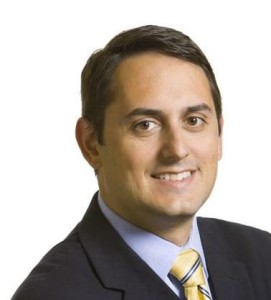 The Right Note is a weekly opinion column. The views and opinions expressed in the column are those of the author and do not necessarily reflect the views of ARLnow.com.
The Right Note is a weekly opinion column. The views and opinions expressed in the column are those of the author and do not necessarily reflect the views of ARLnow.com.
Late yesterday, news began to spread that Metro was considering shuttering entire lines for six months at a time. According to the Washington Post report, the discussion also included calls for a $1 billion increase in annual funding.
With the recent mid-week shutdown of the entire system, the region should not assume that General Manager Wiedefeld is merely posturing. However, there are undoubtedly some on the Metro Board who see the possibility of long-term shutdowns as leverage in the funding debate.
The simple fact of the matter is that Metro has lost the trust of the public. We cannot be expected to simply take their word for it.
Here are four things the General Manager and Metro Board should do as this debate continues.
- Produce a comprehensive plan for structural reforms to Metro’s operations.
When I wrote on this subject two weeks ago, I noted concerns from a WMATA official that the new General Manager could not rely on the people working there. The challenges Metro faces clearly go beyond current safety concerns and into why Metro got here in the first place. Mr. Wiedefeld has said things were worse than he thought, so he should show us how he intends to change course.
- Submit a full maintenance plan for public review.
Such a plan should identify both short-term and long-term maintenance needs. If Metro does not believe it can complete the immediately necessary repairs on nights and weekends, they must tell us why.
- Separate one-time needs from long-term funding in any new funding proposal.
What happens too many times in government is a failure to identify one-time needs versus ongoing needs. The result is an inflated baseline of ongoing spending. Budgets really should be built on an annual basis rather than with automatic assumptions that increases are necessary across the board.
- Identify possible cuts in any new funding proposal.
It is likely we will hear that all the fat has been trimmed from Metro. But if the General Manager honestly believes there is nowhere he can cut, he should explain where he looked and why he arrived at this conclusion.
It’s not that the region is unwilling to pay for Metro. It’s that after years of fare increases coupled with safety and maintenance failures, people are rightly taking more of a “trust but verify” posture before committing to another $1 billion per year.

